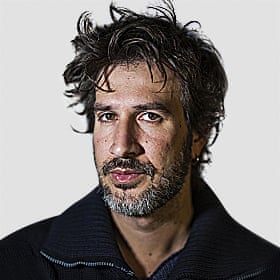Zelenskyy’s top aide praises ‘very important, meaningful conversation’ with Trump
Andriy Yermak, the most senior aide to Ukrainian president Volodymyr Zelenskyy, said in a brief social media update that the call with Trump was “a very important and meaningful conversation between the presidents.”
“All details will be available very soon,” he added.
Key events
-
Zelenskyy’s top aide praises ‘very important, meaningful conversation’ with Trump
-
Trump spoke with Germany’s Merz on Ukraine, EU-US trade
-
One person killed in overnight strikes on Kyiv
-
French air traffic controllers continue strike for second day
-
Finnish president finalises anti-mine treaty withdrawal amid Russia threat
-
Young Europeans losing faith in democracy, poll finds
-
Diogo Jota to be honoured as mourners gather in Portugal for Liverpool player’s wake
-
Germany to host EU summit on stricter asylum, migration policies
-
Blackout hits Czech Republic
-
Thousands demand restrictions on outside work during heatwave after street sweeper’s death
-
More deaths linked to continuing heatwave in Italy
-
At least 27 injures in gas explosion at petrol station in Rome
-
Macron, Starmer to co-chair Ukraine summit in UK on 10 July
-
Ukraine’s Zelenskyy confirms fresh prisoner swap with Russia
-
Russia says currently unable to achieve goals in Ukraine through diplomacy
-
‘Various ways to fill Patriot gap,’ Germany says
-
Active talks to buy US Patriot missiles for Ukraine, Germany says
-
Trump-Zelenskyy call ‘this afternoon,’ official says
-
‘Putin is mocking your peace efforts,’ Polish foreign minister tells Trump urging him to restore supplies for Ukraine
-
Footage shows explosions in Kyiv after Russia pummels city in all-night drone attack – video
-
Macron spoke with Trump last night on Iran, Ukraine, EU-US trade talks
-
Kyiv strike overnight saw largest number of drones and missiles used in single attack, Ukraine says
-
Russia increases use of chemical weapons in Ukraine, German and Dutch intelligence services warn
-
Morning opening: Russian attacks on Ukraine continue
Please turn on JavaScript to use this feature
Jakub Krupa
If and when we hear from Trump or Zelenskyy, I will bring you their comments here immediately.
Zelenskyy’s top aide praises ‘very important, meaningful conversation’ with Trump
Andriy Yermak, the most senior aide to Ukrainian president Volodymyr Zelenskyy, said in a brief social media update that the call with Trump was “a very important and meaningful conversation between the presidents.”
“All details will be available very soon,” he added.
Trump spoke with Germany’s Merz on Ukraine, EU-US trade
Meanwhile, German magazine Spiegel reports that German chancellor Friedrich Merz also spoke with US president Donald Trump, discussing the situation in Ukraine and EU-US trade.
Spiegel reported that Trump made no commitments during the call, with Germany reportedly calling for more support for Ukraine on air defence.
One person killed in overnight strikes on Kyiv
Russia pummelled Kyiv with the largest drone attack of the war, killing one person, injuring at least 23 and damaging buildings across the capital hours after US president Donald Trump spoke to Russia’s Vladimir Putin, officials said on Friday.
Air raid sirens, the whine of kamikaze drones and booming detonations reverberated from early evening until dawn as Russia launched what Ukraine’s Air Force said was a total of 539 drones and 11 missiles.
Families huddled in underground metro stations for shelter. Acrid smoke hung over the city centre. Kyiv’s military administration chief said on Friday afternoon a body had been found in the wreckage of one of the strike sites.

Jakub Krupa
That brings you up to date on most important things happening in Europe today.
Let’s go back to Ukraine, as we wait more details on that much anticipated Trump-Zelenskyy call.
French air traffic controllers continue strike for second day
A strike by French air traffic controllers entered its second day, leaving many passengers stranded at the start of Europe’s peak travel season, Reuters reported.
Civil aviation agency DGAC told airlines to cancel 40% of flights at the three main Paris airports because of the strike, which the air traffic controllers say is over staff shortages and ageing equipment.
Up to half of flights at France’s other airports, mostly in the south, were also affected, DGAC added.
The Airlines for Europe (A4E) lobby group said late on Thursday that 1,500 flights had been cancelled over the two-day strike, affecting 300,000 passengers and causing cascading delays.
Finnish president finalises anti-mine treaty withdrawal amid Russia threat
Finland’s president Alexander Stubb approved the country’s withdrawal from a treaty banning anti-personnel mines, citing a “deteriorated security situation” and longer-term threat from Russia, AFP reported.
Finnish lawmakers voted to leave the anti-landmine Ottawa Convention in June but the decision needed to be signed by the president.
“Finland is not facing an immediate military threat, but the changes in the operating environment require that we strengthen our defence,” Stubb said in a statement.
“We have a long border with Russia, which is not a party to the Ottawa Agreement. We have seen how Russia wages war today.”
AFP noted that Finland’s decision will come into effect six months after the country formally notifies the United Nations.
Estonia, Lithuania and Latvia, as well as Poland, also plan to exit the treaty.
Young Europeans losing faith in democracy, poll finds

Deborah Cole
Only half of young people in France and Spain believe that democracy is the best form of government, with support even lower among their Polish counterparts, a study has found.
A majority from Europe’s generation Z – 57% – prefer democracy to any other form of government. Rates of support varied significantly, however, reaching just 48% in Poland and only about 51-52% in Spain and France, with Germany highest at 71%.
The study was carried out in April and May. More than 6,700 people between the ages of 16 and 26 in Britain, Germany, France, Spain, Italy, Greece and Poland responded to the ninth annual survey by the YouGov institute for the Tui Foundation, which funds projects dedicated to youth in Europe.
More than one in five – 21% – would favour authoritarian rule under certain, unspecified circumstances. This was highest in Italy at 24% and lowest in Germany with 15%. In France, Spain and Poland the figure was 23%.
Nearly one in 10 across the nations said they did not care whether their government was democratic or not, while another 14% did not know or did not answer.
Thorsten Faas, a political scientist at Berlin’s Free University, who worked on the study, said: “Among people who see themselves as politically to the right of centre and feel economically disadvantaged, their support of democracy sinks to just one in three.
Democracy is under pressure, from within and without.
Diogo Jota to be honoured as mourners gather in Portugal for Liverpool player’s wake

Andy Hunter
Mourners are gathering at a wake in Portugal to commemorate Diogo Jota and his brother, André Silva, following their deaths in a car accident.
Jota and his 25-year-old sibling died when the Lamborghini they were travelling in careered off a road in north-western Spain in the early hours of Thursday. The bodies of the two professional footballers were returned to Portugal later that day.
José Manuel Macedo, parish priest at the Igreja Matriz de Gondomar in São Cosme, said that a wake for the brothers was taking place at the nearby Capela da Ressurreição on Friday before their funeral at the Igreja Matriz church on Saturday at 10am. Jota and Silva grew up in Gondomar, a small city east of Porto.
Jota was 28 and had married his long-term partner, Rute Cardoso, 11 days before his death. They had three young children.
Germany to host EU summit on stricter asylum, migration policies
Germany’s interior minister plans to host an EU summit to push for stricter rules for the bloc’s asylum system in Bavaria on 18 July, a ministry spokesperson said, as the new government seeks to deliver on a campaign pledge.
Alexander Dobrindt has invited interior ministers of France, Poland, Austria, Denmark and the Czech Republic, as well as the EU’s internal affairs commissioner Magnus Brunner.
The event will take place at the Zugspitze, Germany’s highest peak, on 18 July, Reuters reported.
Germany recently stepped up its migration policy, causing a public spat with Poland, and joining the bloc’s group of migration hawks.
Blackout hits Czech Republic
Large parts of the Czech Republic including the capital city of Prague were hit by a major blackout, causing widespread disruption.
Other cities, like Hradec Králové, Liberec and Ústí nad Labem, also reported issues.
The country’s prime minister Petr Fiala said in a social media update that it was “an extraordinary and unpleasant situation,” as he assured citizens that the state was “working intensively to restore electricity supplies.”
He also confirmed that a crisis response was under way.
Czech media reported that the cause of the blackout was unknown, with officials quoted by iDnes appearing to dismiss suggestions of a third-party intervention.
Health minister Vlastimil Válek sought to reassure Czechs that the healthcare system had “clearly defined procedures in place” to deal with the disruption, with backup generators in use. “Patient care is not at risk,” he said.
Thousands demand restrictions on outside work during heatwave after street sweeper’s death

Ashifa Kassam
In Spain, more than 35,000 people have signed onto a petition calling on the government to decree a maximum temperature at which people can work outdoors.
The petition was launched by Elvira Gómez, a street sweeper in Catalonia.
“Thousands of us work in the open air, without shade, in physically demanding jobs, in heavy, thick suits and sometime in temperatures of up to 40 degrees without access to water or rest areas,” the petition notes.
It comes after the death of Montse Aguilar, a street sweeper in Barcelona. On Saturday, as Spain wrestled with its first heatwave of the summer, Aguilar told a friend that she was feeling ill after hours of working outdoors in temperatures that had climbed past 35 degrees Celsius. She walked home after her shift and collapsed soon after – paramedics were unable to revive her.
Gómez said she and other street sweepers worried constantly that something similar could happen to them. “If we are lucky, we get a five-minute break per hour or a bottle of water for the whole shift,” she noted.
While Spanish law stipulates that companies must take measures to protect their employees when there are official heat alerts, Gómez said it wasn’t enough. “This does not protect those of us who work in the sun when there is no alert but it’s 33 to 35 degrees,” she said.
Spanish law had already set out limits for office workers, stipulating that indoor spaces must be kept at 27 degrees or cooler. “But if you work in the street, there’s no limit.”
She called on Spain – where heatwaves are becoming more frequent – to take action.
“We don’t want to mourn the deaths of more of our colleagues due to heat exhaustion,” the petition notes.
More deaths linked to continuing heatwave in Italy

Lorenzo Tondo
in Palermo
A 22-year-old woman has died of a heart attack while training in a gym without air conditioning near Turin, as Italy continues to struggle with extreme summer temperatures.
The woman, who was from Chieri, collapsed on Thursday while working out in the weights room of a gym in Poirino, a town in the province of Turin. According to local sources, the facility had no air conditioning system, and staff confirmed that windows are typically left open during hot days to provide ventilation.
Despite attempts to revive her, the woman died on site.
Separately, a 58-year-old construction worker has died after collapsing on a job site in Atina, a town in the province of Frosinone, marking the second fatality on a local building site in just three days and the 8th victims in Italy due to the heat.
The man had been working on the installation of a new fibre optic network along Via Randolfi when he reportedly fell ill and collapsed around 10am. Emergency medical teams from Cassino arrived within minutes and attempted resuscitation, but were unable to save him. He was pronounced dead at the scene.
The incident has reignited concerns over health and safety conditions on Italian construction sites, particularly during periods of intense heat.
On Friday, 58-year-old retired farmer, from Palagonia in the province of Catania, was found dead on his land in the Serravalle area of Lentini, in the province of Syracuse, possibly due to a heart attack brought on by extreme heat.
Health authorities have issued repeated warnings in recent days urging people to avoid physical exertion during the hottest hours of the day, particularly in enclosed or poorly ventilated spaces.
At least 27 injures in gas explosion at petrol station in Rome

Lorenzo Tondo
in Palermo
A gas explosion at a petrol station in Rome injured at least 27 people, including police officers and emergency workers who had been called in to respond to a gas leak after a truck struck a gas pipe.
The blast, which occurred in the northeast of the capital, was powerful enough to be heard across much of the city. A thick plume of smoke rose into the sky and was visible from several districts. Local residents sustained minor injuries from flying glass as windows shattered under the force of the explosion.
Among the injured was a man pulled from a burning car who remains in serious condition. The others are not believed to be in life-threatening danger, according to local officials.
The manager of a nearby summer camp said the timing of the explosion, early in the morning, may have prevented a much greater tragedy. “It would have been a massacre if the 60 children and 120 people who use the swimming pool had already arrived,” they said.
Prime minister Giorgia Meloni said she was in close contact with Rome’s mayor, Roberto Gualtieri, and was monitoring the situation. Pope Leo also expressed his solidarity, saying he was praying for the victims.
Rome prosecutors have opened an investigation into the incident.
-
This post was corrected on 4 July 2025, an earlier version incorrectly referred to the previous pope, Pope Francis

Jakub Krupa
As we wait for the Trump-Zelenskyy call, let’s do a quick news round on other developments in Europe.
Macron, Starmer to co-chair Ukraine summit in UK on 10 July
We’re now getting a line from the Élysée Palace that French president Emmanuel Macron and British prime minister Keir Starmer will co-chair a Ukraine summit in the UK on 10 July.
“There will certainly be a discussion on how to seriously maintain Ukraine’s combat capability,” the palace said, adding that Starmer and Macron will co-chair the meeting of Kyiv’s allies by video link.
The date coincides with Macron’s formal state visit to the UK from 8 to 10 July, during which he will also address the UK parliament.
AFP noted Macron will be the first French president to make a state visit since Nicolas Sarkozy in 2008.
Ukraine’s Zelenskyy confirms fresh prisoner swap with Russia
Ukrainian president Volodymyr Zelenskyy has just confirmed the latest swap of prisoners of war, posting some pictures of them wearing Ukrainian flags.
He said:
“Our people are home. Most of them had been held in Russian captivity since 2022.
Today, our defenders who fought for Ukraine in various regions – the Donetsk region and Mariupol, the Luhansk, Kharkiv, and Kherson regions – are coming back. These are warriors of the Armed Forces, the National Guard, the State Border Guard Service, and the State Special Transport Service. And also civilians.
Exchanges must continue, and I thank everyone ensuring this. Ukraine’s goal is to free all our people from Russian captivity. I am grateful to everyone who helps make this possible.”















